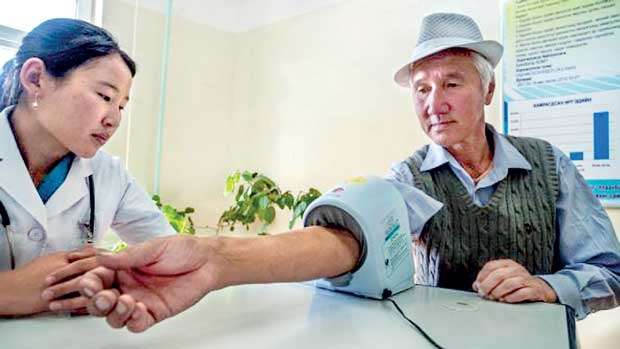Reply To:
Name - Reply Comment
Last Updated : 2024-04-26 18:26:00

 The world is experiencing an unprecedented demographic transition – it is getting older. By 2025, 26 percent of the global population will be at least 65 years old.
The world is experiencing an unprecedented demographic transition – it is getting older. By 2025, 26 percent of the global population will be at least 65 years old.
In Asia, the elderly will soon account for more than 20 percent of the population in the People’s Republic of China (PRC), Republic of Korea and Singapore. Japan already surpasses that figure.
Rapid aging is also affecting several low- and middle-income countries in Asia and the Pacific. The share of the population over 65 is expected to increase four- to sevenfold from 2012 to 2050 in India, Mongolia and Thailand.
There is growing apprehension among countries in developing Asia about whether they will have enough time to successfully adapt to their aging demographic profile, as Japan or Europe have done.
Elderly populations generate greater demand for healthcare services for chronic conditions, including non-communicable diseases (NCDs) such as heart disease and cancer. The aging process speeds up epidemiological changes that manifest as NCDs and other chronic conditions, which are now becoming the main causes of illness and account for 75 percent of deaths among the elderly.
A rapidly aging Asia demands swift adaptation and changes. Future education, employment and social protection systems should be geared to enable the elderly to continue working and provide adequate income security long into their 80s and 90s.
We also need to promote innovative financing mechanisms and public-private partnerships and mobilize and reallocate government and private sector funding—including for health insurance—to help build up new health infrastructure that appropriately responds to the needs of the elderly.
To cope with aging populations, countries in developing Asia will have to reconfigure their health service delivery systems and step up ongoing moves around the region towards universal health coverage, so older people will not face the risk of financial hardship as they access care.
At present, health systems in many low- and middle-income Asian countries lack the cohesiveness and efficiencies required for universal health coverage. They are fragmented, involving a multitude of national and sub-national government entities, funding agencies and healthcare organisations.
Moreover, there is a lack of coordination between different levels and settings of the health systems, as well as separate funding mechanisms and a wide range of separate financing pools.
In a fragmented system, different populations are covered under different financing pools and served by different healthcare providers. Fragmentation entails heavy reliance on out-of-pocket payments as people increasingly rely on private healthcare services, resulting in rising total costs.
Access to quality healthcare in fragmented systems is based on the ability to pay, so coverage is inequitably distributed across and within countries. This in turn leads to large disparities in health outcomes within a common system.
Fragmentation has contributed decisively to the misalignment of incentives and a lack of coordination between government service providers, creating inefficiencies in the pooling of funds. It raises concerns about the capacity of national governments and health insurers to function as strong purchasers of healthcare services.
The appropriate response to the changing health needs of aging populations is to shift from acute and episodic care and fragmented systems towards integrated systems that provide a coordinated continuum of care, including home care. Asian countries, which lifted millions out of poverty just a few decades ago, can rapidly produce quality elderly care workers needed for integrated systems. They can mobilize the financing needed for comprehensive provision of elderly care, just as they did for their national health insurance (NHI) systems.
Countries including the PRC, Indonesia, Lao People’s Democratic Republic, Mongolia, the Philippines, Thailand and Viet Nam are in the process of scaling up NHI coverage to between 80 percent and nearly all of their population.
Benefits would be even more profound if they similarly reconfigured their health service providers into integrated service delivery systems, while using their NHI systems as platforms for financing comprehensive elderly care—as is happening in Japan, the Republic of Korea and Singapore.
Aging populations pose challenges for health systems, but they also provide an opportunity to make the changes needed to assure better and more responsive care. Inclusive, innovative, and resilient health systems will deliver better care to older people with NCDs and other chronic conditions, enabling them to live longer, healthier and more productive lives.
(Eduardo P. Banzon is Principal Health Specialist, Sustainable Development and Climate Change Department, the Asian Development Bank)

Add comment
Comments will be edited (grammar, spelling and slang) and authorized at the discretion of Daily Mirror online. The website also has the right not to publish selected comments.
Reply To:
Name - Reply Comment
US authorities are currently reviewing the manifest of every cargo aboard MV
On March 26, a couple arriving from Thailand was arrested with 88 live animal
According to villagers from Naula-Moragolla out of 105 families 80 can afford
Is the situation in Sri Lanka so grim that locals harbour hope that they coul

51 minute ago
3 hours ago